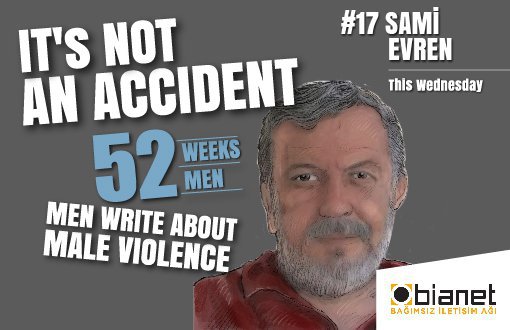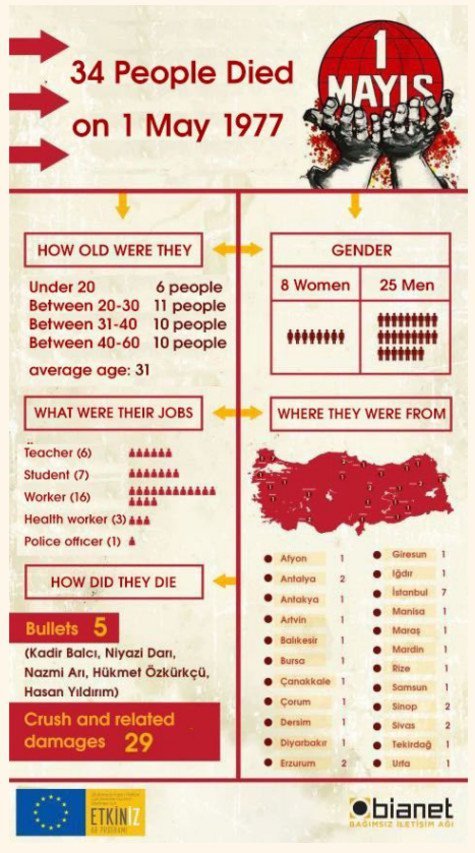
Click to read the article in Turkish
8 women, 25 men...
Six teachers, seven students, 16 workers, three health workers, one police officer.
Five shot, 29 crushed and inflicted crush injuries...
And impunity!
34 people known with autopsy reports and civil registers, one of them unidentified... Injured people, prisons and courts where the aggrieved parties were put on trial, not the responsible ones...
The political history of authoritarian states will always be a closed book in cosmic rooms. Putting a historical period on its agenda, bianet has undertaken an important research to break the hegemony of official history.
Meeting the hurt loved ones of the massacred 44 years later does not mean soothing consciences. On the contrary, it means questioning the lack of conscience, impunity and dirty political history.
The 1970s
Having withdrawn as the head of the Republican People's Party (CHP) in line with his decision at the meeting on May 7, 1972 during the CHP's 5th Extraordinary Convention, İsmet İnönü's time in office as the CHP Chair ended after 33 years, 4 months, 11 days.
With Bülent Ecevit as the new leader of the CHP, left opposition groups started to make their presence felt on the political scene in a more well-organized manner.
At the first general elections that he took part in 1973, Ecevit increased the left votes by receiving 33.3 percent of the votes. With the coalition government that he formed with the National Salvation Party (MSP) of Necmettin Erbakan in 1974, he became the Prime Minister for the first time. His government carried out the Cyprus Operation in 1974.
The United States of America (USA) imposed an arms embargo on Turkey after the Cyprus Operation. Turkey's response to this move in 1975 and afterwards was to stop the activities of US bases.
The embargo was lifted in 1978, the bases started operating again. When we came to the 2000s, only the İncirlik base remained in Turkey. Let's note here that there are 90 nuclear warheads in the İncirlik base.
In 2010, Turkey had a new US Base: Kürecik Missile Defense Radar Station.
Ecevit was, at every opportunity, repeating that he would lift the ban on opium poppies. In March 1974, the government informed Washington that it had the intention to start plantation of opium poppies.
On July 1, it declared that opium poppy plantation would start under strict state control in seven provinces of Turkey.
While the talks on opium poppies in Turkey were still ongoing at the US Congress, the House of Representatives, on July 16, 1974, suspended all military, economic and other aids to Turkey as well as the licenses for the sale of all ammunition and services for purposes of defense and transportation of arms.
While this tension between the US and Ecevit's government consolidated Ecevit's power in domestic politics, it was concerning for the US.
Ahead of 1977
The contradictions within the CHP-MSP coalition government gradually increased in 10 months with the inclusion of political prisoners in the general amnesty and the disagreements about Cyprus; they ended with Ecevit's resignation on September 18, 1974.
As the above-party 38th Government, headed by Sadi Irmak, could not receive the vote of confidence, the 1st Nationalist Front Government was formed, with Süleyman Demirel as the Prime Minister.
Turkey entered 1977 with the 39th Government formed on March 31, 1975. The Prime Minister was Süleyman Demirel. The coalition formed under the name of Nationalist Front (NF government) consisted of four political parties: Justice Party (AP), National Salvation Party (MSP), Nationalist Movement Party (MHP) and Republican Trust Party (CGP).
On April 5, the NF government moved the general elections scheduled for October 14, 1977 to an earlier date, to June 5, due to economic and political instability.
While the elections of June 5, 1977 were approaching, Turkey was breathing an air of 'civil war', so to speak. A few murders were committed almost every day. The attacks reached out to Ecevit. Ecevit was attacked during his election rallies in Niksar and Şiran on April 26 and 27, 1977. 157 citizens lost their lives in political conflicts in the first five months of 1977, when the domestic political tension was constantly escalating.
Socialist movements
The existence of socialist states in the world and their fragmentation were reflected in the socialist movements in Turkey as well. The half-projections of the liberation movements in the Soviet Union, China, Albania and Latin America were organized in Turkey, too.
The conflicts within the left were irreconcilable due to political differences. The fractions within the left reached such an extent that they could lay the ground for conflicts and provocations. These fractions were not only within the youth, but within labor unions, democratic mass organizations and universities as well; they were in all aspects of life.
It was now impossible for some groups to hold a protest demonstration or a rally together. However, organizations with high numbers of members such as the Confederation of Progressive Trade Unions of Turkey (DİSK) and the Unity and Solidarity Association of All Teachers (TÖB-DER) contained these groups within themselves. For this reason, the 1st of May organized by the DİSK was an organization that all political groups wanted to participate in.
In that period, pro-Soviet groups, which were powerful in labor unions, especially organizations such as the Communist Party of Turkey (TKP), Workers' Party of Turkey (TİP) and Socialist Workers' Party (TSİP) of Turkey announced that they would not let the groups that they defined as "Maoist Grey Wolves" enter the 1st of May site.
The groups which defined the Soviet Union's regime as "Social Imperialism", such as the Proletarian Revolutionary Enlightenment (PDA), People's Liberation and People's Path announced in their magazines and on different platforms that they would break the blockade of the "social fascists" and enter the site.
This given situation laid the most fertile ground for provocation.
Unionization
In 1976, the number of workers in Turkey, with a population of 41 million, was 2 million 17 thousand 875 and the number of unionized workers was 924 thousand 124. In 1976, 190 thousand workers were unionized in 25 unions affiliated with the DİSK.
In the period of 1967-1970, the DİSK was mostly organized in private sector businesses in the Marmara Region. According to the union records, the number of DİSK members reached 500 thousand in 1980, when the total number of workers was 2 million 204 thousand 807 and the number of unionized workers was 1 million 49 thousand 330.
We can say that the rapid increase in the number of DİSK members, its active involvement in the struggle for rights and its political attitudes in the struggle for democracy ruled out political power holders and employer organizations. In the 1977 elections, the DİSK declared its decision to support the CHP.
Attempted assassinations of Ecevit
* When Stavros Psihopedrisdes from Southern Cyprus pointed his gun at Ecevit from New York Waldorf Astoria Hotel in July 1976, security guard Bernard assigned by the FBI jumped on him; Ecevit was taken away from the scene of the incident in the meanwhile.
* The attempted assassination of Bülent Ecevit at İzmir Çiğli Airport in May 1977 was the darkest of all. On May 29, 1977, when Ecevit was about to get in the electoral campaign bus while preparing for an election rally in İzmir, a person approached him and opened fire. The bullet hit and wounded Mehmet İsvan at the back. As it "turned out" after the incident, the person who opened fire was a police officer on duty at the police station. The police claimed responsibility and in the trial that ended in 1980, he was sentenced to three months in prison and a judicial fine of 500 liras over the incident that was attributed to "carelessness."
It was detected that the weapon used in the attempted assassination was a US-made Tengas brand gun; there were three of them in Turkey and they belonged to the Special Warfare Department. The company that produced the gun followed the course of the wound in Mehmet İsvan's leg for over 10 years and had him treated in Switzerland.
Coup allegation in the MİT report
Prime Minister Süleyman Demirel retired General Kemal Ersun, the Commander of Land Forces, from office on June 1, 1977, a month after the 1st of May 1977 and four days before the general elections. Considering that the Military Council, where promotions and retirements were concluded, would convene in August, this dismissal from office was extraordinary.
The National Intelligence Organization (MİT) was allegedly giving reports to Prime Minister Demirel, indicating that General Ersun was seeking an MHP-supported coup. For this very reason, Demirel, due to the intelligence that he received, sent a note to Ecevit ahead of his grand rally in İstanbul on June 3, saying, "Shots will be fired at you with long-barreled guns from Sheraton Hotel during your rally on June 3."
In response to this letter, Ecevit said, "I will be in Taksim tomorrow." In his propaganda speech aired on radio for the elections on June 5, 1977, he shared the "information" that he had been given intelligence about an assassination attempt against him, asking everyone to not come to the rally for this reason. He announced that he would be in Taksim on his own.
Ecevit was at Taksim Square on June 3, 1977; he was not alone, the square was full of people.
Ecevit held the rally while General Ersun, together with the military personnel involved in the allegations, were retired in an ex officio manner. As the line broke up, General Kenan Evren, even though he was third in the line for command, was appointed as the commander of land forces. Afterwards, it was commented that with this appointment, the first steps were taken to form the command echelon of the September 12, 1980 military coup.
1st of May statements
Prime Minister Süleyman Demirel: "Kemal Türkler did not finalize the rally in any way, he prolonged it. These incidents brought about by Kemal Türkler, by this villain are a continuation of June 15 incidents. It was done by Maoist groups... CHP mayor Ahmet İsvan was also at the DİSK's rally. There were also people from the TİP. If they do not see communism as a danger, incidents come to that point." (May 1, 1977, before the Ministerial Cabinet Meeting)
Joint statement by İstanbul Governor Namık Kemal Şentürk and İstanbul Security Director Nihat Kaner: "The rally organized by the DİSK continued in a normal manner. However, shortly before the people dispersed, some groups infiltrated the Taksim site. It has been detected by witnesses and with various documents that this group that infiltrated the site started the conflict. This conflict, which could have ended more terribly, was prevented as security forces confronted it sacrificially. In fact, a plunder, a pillage was quelled with the measures taken instantaneously." (In the evening of the 1st of May 1977)
CHP Chair Bülent Ecevit: "I am of the opinion that some groups that are within the state, or at least benefiting from the state power, but falling outside the control field of the democratic state of law, are the main factor behind these incidents and both flanks of the government want to benefit from these organizations, instead of taking the necessary measures." (May 7, 1977, Speech at CHP İzmir Rally)
Bülent Ecevit's letter to President Fahri Korutürk: "...Some of these actions are of such quality that they could be organized only by a powerful organization, not by the kids in sight. Especially the Taksim incident of the 1st of May 1977 gives this impression.
"The aim of this organized act was to create intimidation, fear and panic among the people, among over 100 thousand people watching the rally... The panzers, stationed inside and outside the site, started to sound sirens, moved from one side of the site to the other among people, threw stun grenades, sprayed water on people who took refuge somewhere and opened fire, which emerged as another factor that led the mass of 100 thousand people who lost their normal sense of judgement and cool to a large extent and were fearing for their lives to get panicked faster." (Letter dated May 7)
Opinions of six deputy prosecuting attorneys who prepared the Indictment of the 1st of May 1977 Trial: "The state gave permission to the DİSK for the 1st of May rally. If a state gives permission for a rally, it is obligated to ensure that the rally in question is held in security. Here, the state is guilty due to its failure to provide security. They know that incidents might erupt, incidents erupt and they cannot catch a single gun that went off. The ones who were on duty at the time must be asked: You knew that incidents might erupt; how come did you not bring a single serious defendant before the judge even though the incidents that you had guessed erupted? It is a wonder that I am the only public officer defendant of this incident."
Statement by İstanbul Mayor Ahmet İsvan: "In that period, they were not doing anything else other than criticizing one another. I do not consider a left provocation possible. It is not something considered that they caused such an incident at the rally of the DİSK. They were breaking off, new fractions were coming up; but I do not deem it likely, considering their relationship with the DİSK. As a branch, we were of course watching them... A provocation caused by security officers is not possible. If one had done it, the other would have filed a complaint; if the other had done it, the first one would have complained. In fact, the unpleasant situation caused by the Police Association (Pol-Der) - Police Union (Pol-Bir) dispute, at least in the 1st of May incident, is something that lifts the curtain of mystery on the police." (From the interview given to Emel Armutçu for Yeni Gündem, issue: 8, 1986.)
Directorate General of Security Subversive Activities Branch Director Fevzi Karaman: "When we look at the ones who survived the disaster with injuries, we are faced with a more different situation. As long as we could detect, there are 34 people injured by firearms, most of them in fatal parts of their bodies such as the head and chest. The reason why these injuries did not end in death was that several hospitals, primarily Beyoğlu İlk Yardım Hospital, were in close proximity to the Taksim site and the injured people taken to these hospitals underwent medical intervention very quickly. If it had not been the case, the number of people who would have lost their lives due to firearm injuries would be certainly higher." (Directorate General of Security Subversive Activities Branch Director Fevzi Karaman, from his interview to Tanıl Bora for YeniGündem, issue: 8, 1986).
Allegations of laying the ground for coup
The allegations that the Massacre of 1st of May 1977 was organized to lay the ground for the coup
Considering the army's tutelage over the governments in Turkey's political history, the resolutions of the National Security Council (NSC) and their interference in the elected governments in previous periods, the increase in the incidents that would legitimize a coup started to signal that there were preparations for a new coup.
The massacre of the 1st of May, 1977 was the leading incident in that regard. The fact that the army was seen above politics by society and politicians were worn out multiplied the reasons for the army's seizure of power, which led several issues to be discussed in relation to the September 12 coup in its aftermath. The unsolved incidents and murders gave weight to these thoughts.
1st of May in the September 12 Trial
As a matter of fact, the massacre of 1st of May 1977 was one of the subject matters in the court case where the putschists of September 12, 1980 were put on trial.
The first hearing of the case filed against Kenan Evren, the then Chief of General Staff and the 7th President of Turkey, and retired General Tahsin Şahinkaya, the then Chief of Air Staff, over the coup of September 12, 1980 was held at the Ankara 12th High Criminal Court on April 4, 2012.
The information about the 1st of May 1977 requested by the court was added to the file (documents dated January 19, 2012 and file no. 201/3), the minutes taken down by the police on that day were also among the documents sent to court by the Security Directorate. In the file sent by the Directorate General of Security, there were also the intelligence reports about the period before the 1st of May and the results of the investigation carried out after the 1st of May.
When the background and aftermath of the 1st of May 1977 is considered in the information and documents added to the file of September 12, 1980 case, it is clearly seen that though it was detected that incidents would occur on the 1st of May, the state did not take the necessary measures.
The Security Directorate reported the information in such a way that it gave weight to the idea that the massacre took place as a result of the conflicts that erupted among left groups. It needs to be separately noted that the September 12, 1980 case, which was not a real trial as it was written all over it, was filed years after the coup and putschists could not live long enough to see its results.
'Special Warfare Department' statement by Ecevit
"During my term in office as the Prime Minister in 1974, late General Semih Sancar, the then Chief of General Staff, wanted several millions from the Prime Ministry's discretionary fund for an urgent need. The amount requested from me was nearly the entire money in the discretionary fund...
"I had to ask the General Staff for what purpose this money was requested. The reply was 'We want it for the Special Warfare Department.' I had not even heard the name of such an official department till then... I asked, 'How were the expenses of this department met till now?' I was informed that the USA met all the expenses of the department with a secret fund until then; however, the USA cut this financial contribution and they had to request money from the discretionary fund of the Prime Ministry...
"I asked about the location of the Special Warfare Department. The answer I received was 'It is in the same building as the American Military Assistance Board'... I guess it was natural for me to get surprised and concerned... I requested information about the functions and structure of this department... A briefing was arranged for me. It was attended by late Chief of General Staff Semih Sancar and General Kemal Yamak, whom I then learned was the head of the Special Warfare Department, as well as a couple of other military officers to give information.
Trustworthy 'patriots'
"Ecevit, during his time in office as the Prime Minister in 1978-1979, learned in a trip to the east that a commander was working at the 'Special Warfare Department', got suspicious about the situation and wanted to get information. The following dialogue ensued between the two: 'So, let's say... Could the MHP Chair in this district also be an undercover element in the civilian extension of the Special Warfare Department?'
'Yes, he is, but he is a very trustworthy, patriotic friend of ours'." (November 28, 1990, Milliyet newspaper, Evrensel newspaper)

Alparslan Türkeş, Süleyman Demirel, Bülent Ecevit, Necmettin Erbakan
A year with 3 governments
Bülent Ecevit's CHP won 213 seats at the Parliament by receiving 41 percent of the votes. President Fahri Korutürk assigned him with forming the government.
Ecevit formed the minority government on June 21. Unfortunately, this government could survive only for a full month. As it could not get a vote of confidence from the Parliament, it fell on July 21, 1977.
On the same day, Süleyman Demirel, as the Prime Minister, formed the 41st government by a coalition of the National Salvation Party and Nationalist Movement Party. The name of the government was now the 2nd Nationalist Front government. Therefore, the 39th government should be called the 1st Nationalist Front government.
That being the case, 1977 became one of the unique years with three governments.
Figures from 1st of May 1977
With a population of 4 million, İstanbul's Governor was Namık Kemal Şentürk, its Mayor was Ahmet İsvan and Security Director was Nihat Kaner.
As for the 39th government or the 1st Nationalist Party coalition government, as it is widely known, it was headed by Prime Minister Süleyman Demirel, its Deputy Prime Ministers were MHP Chair Alparslan Türkeş, MSP Chair Necmettin Erbakan and Republican Trust Party Chair Turan Feyzioğlu.
While Sebahattin Özbek (DYP) was the Interior Minister, Zeyyat Baykara (Independent) was the Justice Minister.
The Chief of General Staff was General Semih Sancar, the Commander of Land Forces was General Namık Kemal Ersun, the Commander of Air Forces was General Ethem Ayan, the Commander of Naval Forces was Admiral Bülend Ulusu and the Gendarmerie Commander was General Sedat Celasun.
Today
The Massacre of the 1st of May 1977 has come down in records as the bloodiest massacre in Turkey's political history. It became one of the important grounds for the 1980 coup that happened three years later. There has never been a desire to solve the mystery behind the incidents and it cannot be solved.
The real reason why the massacre of the 1st of May 1977 has remained as the 'deepest' scheme in our memory is Turkey's political panorama. In the incidents that left their marks on Turkey's near and distance history, the state's situation is always suspicious.
The state "secret" considered legitimate by the state to survive and its deep relations have been widely written about, told and discussed. As long as there is no democratic transformation in our country, this debate or the massacres and incidents that have been going on since the schemes and incidents before the massacre of the 1st of May 1977 will never end. (SE/APA/SD)
About Sami EvrenAlumni of Konya Selçuk Institution of Education Department of Sciences. Member |
 |
| This text was created and maintained with the financial support of the European Union provided under Etkiniz EU Programme. Its contents are the sole responsibility of "IPS Communication Foundation" and do not necessarily reflect the views of the European Union. |
CLICK - 1 May 1977 e-book is online
The ones who lost their lives on 1 May '77The ones whose loved ones we could talk to: Ahmet Gözükara (34, teacher), Ali Sidal (18, worker), Bayram Çıtak (37, teacher), Bayram Eyi (50, construction worker), Diran Nigiz (34, worker), Ercüment Gürkut (27, university student), Hacer İpek Saman (24, university student), Hamdi Toka (35, Seyyar Satıcı), Hasan Yıldırım (31, Uzel worker), Hikmet Özkürkçü (39, teacher), Hüseyin Kırkın (26, worker), Jale Yeşilnil (17, high school student), Kadir Balcı (35, salesperson), Kıymet Kocamış (Kadriye Duman, 25, hemşire), Kahraman Alsancak (29, Uzel worker), Kenan Çatak (30, teacher), Mahmut Atilla Özbelen (26, worker-university student), Mustafa Elmas (33, teacher), Mehmet Ali Genç (60, guard), Mürtezim Oltulu (42, worker), Nazan Ünaldı (19, university student), Nazmi Arı (26, police officer), Niyazi Darı (24, worker-university student), Ömer Narman (31, teacher), Rasim Elmas (41, cinema laborer), Sibel Açıkalın (18, university student), Ziya Baki (29, Uzel worker), The ones whose loved ones we did/could not talk to: Aleksandros Konteas (57, worker), Bayram Sürücü (worker), Garabet Akyan (54, worker), Hatice Altun (21), Leyla Altıparmak (19, hemşire), Meral Cebren Özkol (43, nurse), Mustafa Ertan (student), Ramazan Sarı (11, primary school student) The ones only the names of whom are known: Ali Yeşilgül, Mehmet Ali Kol, Özcan Gürkan, Tevfik Beysoy, Yücel Elbistanlı The one whose name is unknown: A 35-year-old man |
The voices of those who lost their loved ones: 1 May '77 and impunity
Political panorama of Turkey-1977
Film industry worker Rasim Elmas, 41, died in Taksim
Construction Worker Bayram Eyi, 50, died in Taksim
Teacher Bayram Çıtak, 37, died in Taksim
High School Student Jale Yeşilnil, 17, died in Taksim
Teacher Kenan Çatak, 31, died in Taksim
Teacher Ahmet Gözükara, 33, died in Taksim
Teacher Hikmet Özkürkçü, 39, died in Taksim
Student-laborer Niyazi Darı, 24, died in Taksim
University student Nazan Ünaldı, 19, died in Taksim
Teacher Ömer Narman, 31, died in Taksim
Laborer Ali Sidal, 18, died in Taksim
Counterperson Kadir Balcı, 35, died in Taksim
Student Hacer İpek Saman, 24, died in Taksim
Factory Worker Kahraman Alsancak, 29, died in Taksim
Laborer Hüseyin Kırkın, 23, died in Taksim
Student Ercüment Gürkut, 26, died in Taksim
Public order police officer Nazmi Arı, 26, died in Taksim
Laborer Mahmut Atilla Özbelen, 26, died in Taksim
Factory worker Hasan Yıldırım, 31, died in Taksim
Itinerant salesperson Hamdi Toka, 35, died in Taksim
Security Guard Mehmet Ali Genç, 60, died in Taksim
Factory Worker Ziya Baki, 30, Died in Taksim
Laborer Mürtezim Oltulu, 42, Died in Taksim
Teacher Mustafa Elmas, 33, Died in Taksim
Student Sibel Açıkalın, 18, died in Taksim
Laborer Diran Nigiz, 34, died in Taksim
1 May 1977 & Impunity
'The state is implicated in this crime, perpetrators must be put on trial'
'If you can't find the killers, you can't remove the stain'
'The perpetrators of the 1 May 1977 massacre got away with it'
Remembrance as a matter of dignity and the fight against impunity
Who is hiding the truth and why?





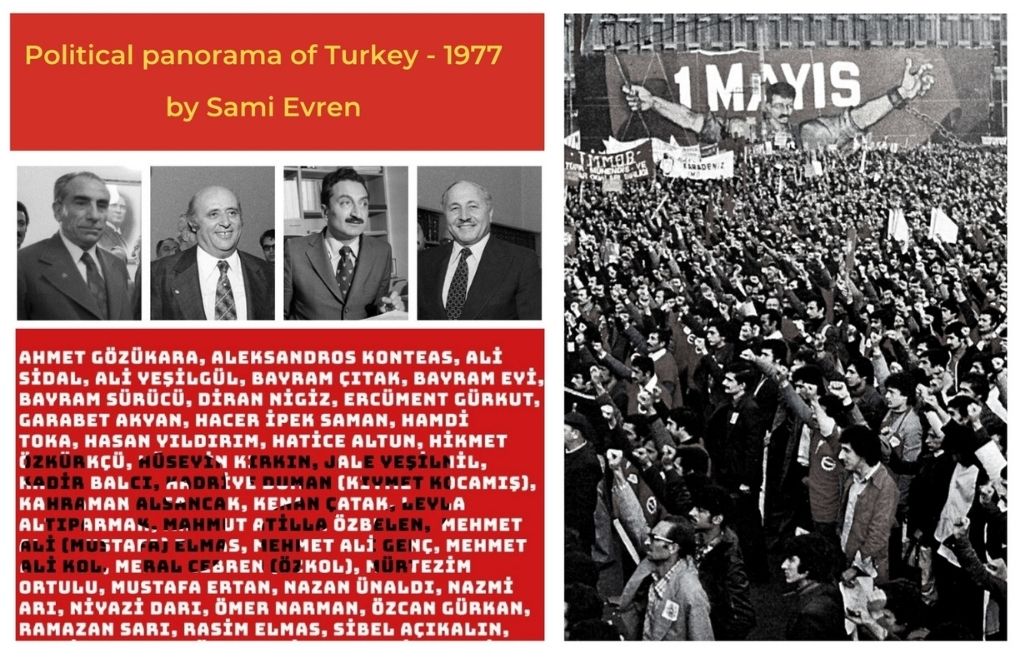
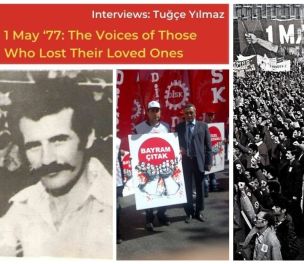
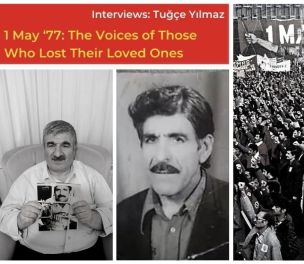
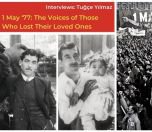
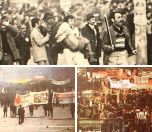
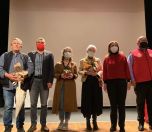
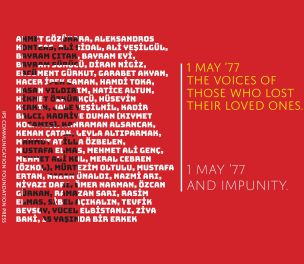
_(1).jpg)
